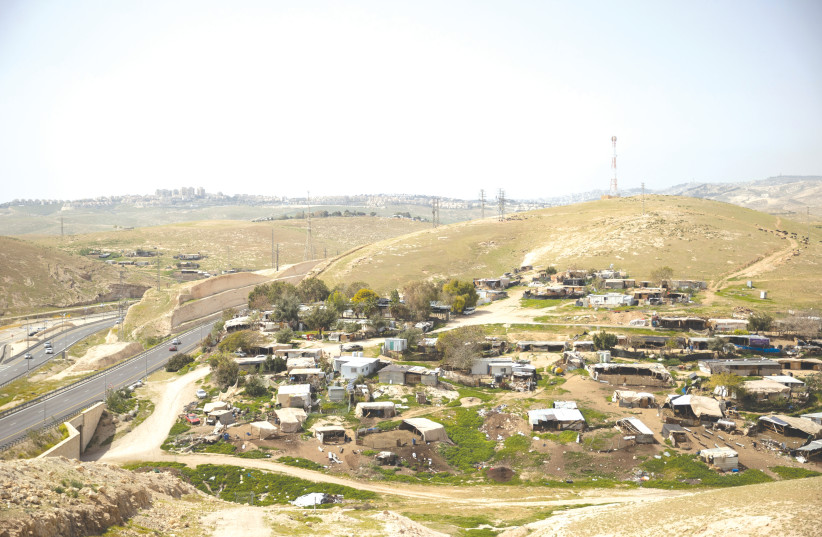The High Court of Justice Sunday granted the state a four-month delay to explain why it has not demolished the illegal West Bank Bedouin herding village of Khan al-Ahmar.
The state asked for an extension last week in light of Prime Minister Naftali Bennett’s involvement in efforts to mediate a possible ceasefire between Russia and Ukraine.
At issue is a 2019 petition by the right-wing group Regavim, the latest in a series of legal steps it has taken since 2009 to force the state to demolish the village.
The court on Sunday granted the state’s request for a delay, but issued a conditional injunction in which it expressed its frustration with the state’s foot-dragging on the matter.
“Viewing the frequent requests for delay, some are more justified, most of them are less justified,” the judges said. They added that they had taken note of “the long period that the petition has been pending, almost three years” and “the fact that the ‘saga’ has been going on since 2009 when the demolition orders were issued.”

In light of this, the judges stated, “it is now necessary to take another step towards a decision, by way of a conditional injunction.”
The state’s submission to the court would mark the first formal declaration by the Bennett-led government as to its intention with respect to the village of some 180 Jahalin Bedouin perched on the edge of Route 1, below the Kfar Adumim settlement.
Bennett, who heads the right-wing Yamina party, campaigned on a platform that called for the village’s demotion. But it is believed that he now wants to come to an agreement with the village, whose residents belong to the Abu Dahuk clan, to relocate the community some 300 meters to the other side of Route 1.
The Israeli Right, including Regavim, have cast the village’s fate within the larger context of the Israeli-Palestinian conflict. Both see the village’s location as part of the larger territorial land battle between Palestinians and Israel for control of Area C of the West Bank.
The international community has pressured Israel to allow the village to remain in the area, which it believes will be within the borders of a future Palestinian state. The former International Criminal Court chief prosecutor Fatou Bensouda had warned Israel in 2018 that the forced relocation of the village could be considered a war crime.
In the 1950s Israel expelled the Abu Dahuk clan from the Negev to neighboring Jordan, which controlled the West Bank prior to the 1967 Six-Day War.
The Abu Dahuk clan settled in the Khan al-Ahmar area in the 1970s, when it was under IDF military and civilian control. The Civil Administration has rejected master plans submitted by Khan al-Ahmar which seek to win authorization of the village in its current location.
